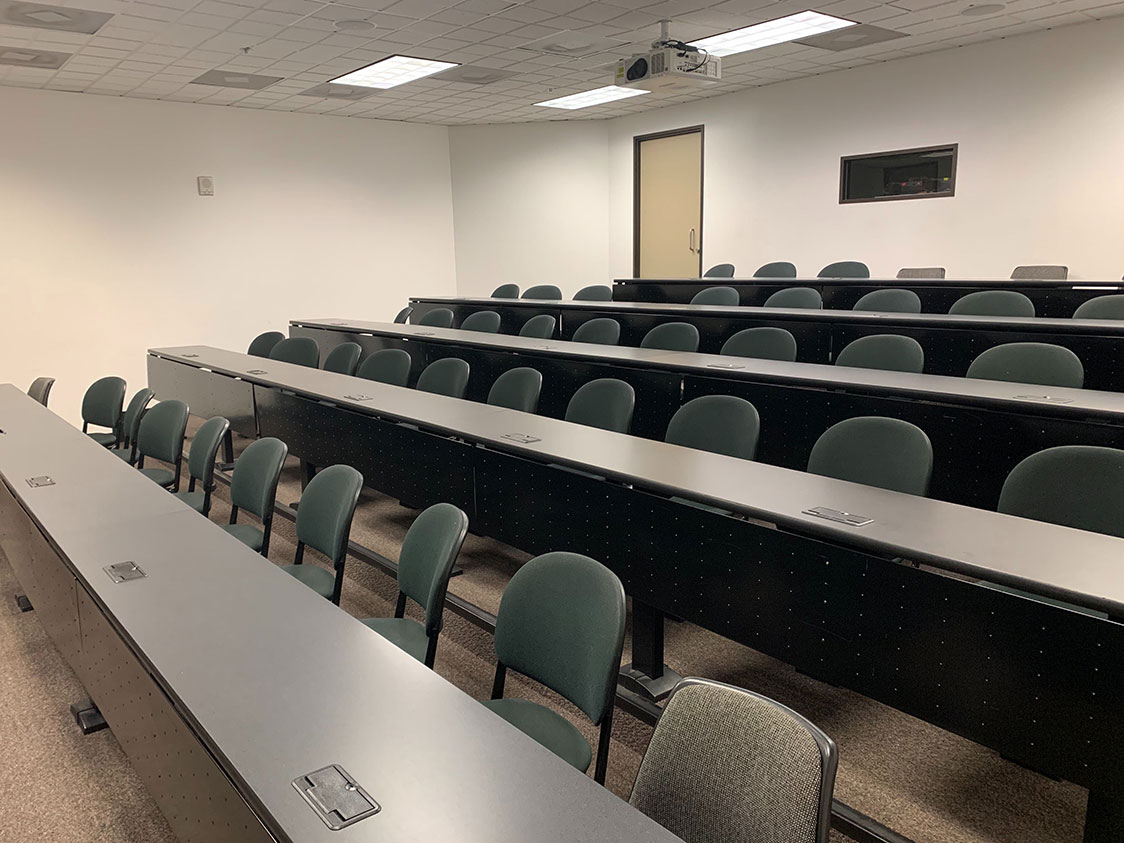
UHCL community grapples with transition to online semester

The University of Houston Clear Lake’s (UHCL) transition from face-to-face classes to an online or alternative format – which is set to last for the remainder of the semester – as a result of the rapidly increasing COVID-19 has led to an array of reactions from students, staff and faculty. As universities across the nation work to continue education during the outbreak, some at UHCL are expressing various ways to adjust to the change.
Keith Parsons, professor of philosophy, has long been an advocate of face-to-face classes and against teaching online classes because of his thoughts on effective teaching.
“I guess in the present situation we have no other choice, but it still sucks,” Parsons said. “I am sure that there are some good online courses. I know that there are some students for whom online classes are the only option. However, teaching, for me, is the paradigmatic face-to-face activity.”
Parsons went on to say why he feels online classes limit the experience of learning and teaching.
“Teaching, like acting, is a performance before an audience,” Parsons said. “However, to an even greater degree than an actor, a good teacher has to be able to sense the audience’s mood and attentiveness and to respond by speeding up, slowing down, giving an example or perhaps by telling a joke. Innumerable elements of motivation, expertise, experience and personality go into making a good teacher. Putting a computer screen between the professor and the student totally changes all of those dynamics, and not for the better.”
Parsons believes the best and most memorable classes are always going to be face-to-face ones.
“Put simply, the best online course is probably better than a mediocre face-to-face course, but the best face-to-face course is better than anything that can be done online,” Parsons said. “Your fondest memories of your education will be of the great teachers, not the computer screens.”
Some professors used past experience to ready themselves for the switch. Leticia French, lecturer of writing, found herself prepared for the transition after what she experienced during Hurricane Ike while at Texas A&M Galveston.
“Since then, I set up all of my classes for an online/hybrid environment,” French said. “Most of my courses are designated as being 50 or greater online (hybrid), and at the beginning of the semester I tell my face-to-face students (and it is in my syllabus) that in the event of a hurricane, or campus evacuation of any kind, our course will simply proceed online and students will work from home or wherever they are.”
Some students, such as Drew O’Pry, business management major, feel the transition to online for the remaining semester is not necessary, saying it may be “a bit of an overreaction.”
“I’m not going to talk much about the coronavirus because I’m not a doctor, but from what I’ve heard it’s like a slightly worse flu and only really has detrimental effects on people aged 65 [and older],” O’Pry said. “Considering the majority of us are from 18 to 30, I think shutting down the school is a bit overkill.”
While there are overlapping symptoms between COVID-19 and the flu, there is currently no vaccine for COVID-19. Regardless of age, anyone can contract the disease – which is currently estimated to kill at least 10 per 1,000 persons, as opposed to the flu which kills about 1 per 1,000 persons each year.
Other students, such as Desiree Vargas, environmental management major, said that the transition would be easier for some classes more than others.
“I think it’ll be OK for certain classes that you can already take online, but having to take online plant anatomy is gonna be a struggle,” Vargas said.
In the midst of split reactions among faculty and students, the university’s Center of Faculty Development has been working to ensure a productive learning environment is created for students.
Robert Bartsch, program director for the Center of Faculty Development, said in the coming weeks, the center will continue to help the colleges and faculty with their challenge by offering resources, tips and being available for consultations.
“We have been working closely with the UHCL Blackboard Instructional Designers and the UHCL Faculty Senate, who have done an outstanding job in helping prepare the 500+ faculty who are teaching in Spring 2020 get ready,” Bartsch said. “We at the Center have been facilitating needed communication to the faculty and working with faculty who have not taught in a fully online environment before.”
Bartsch expressed gratitude to the faculty for how well they have handled the transition.
“Moving online typically takes months of planning,” Bartsch said. “Faculty were asked to do it in one week. For the spring semester, only 27% of all faculty were teaching at least one course online in spring 2020. So, a large majority had to move all of their courses online and almost all had to move some of their classes. I’m amazed at the progress they’ve made in such a short amount of time.”
Bartsch acknowledged that students and faculty will run into obstacles because of the switch, and said he encourages students to be patient with faculty.
“Be prepared for changes after [one to two] weeks as we all get more practiced at online teaching and learning,” Bartsch said. “I expect many faculty will want to make some additional tweaks to improve their classes. Remember, that you are the driving force for your own learning. Be proactive in reading, doing the assignments, participating in discussions, and embracing the material.”
For more information on support services, visit UHCL’s Support Services Directory.
